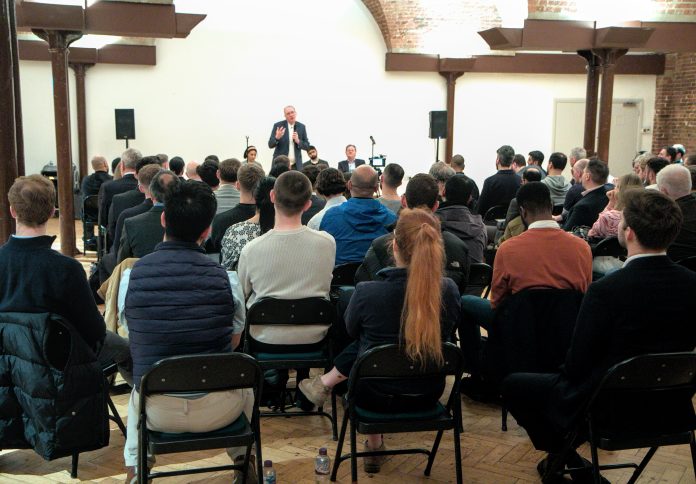August 2024
Our love of the game always comes at a price. But does anyone know the true price?
PQ magazine recently brought together four top experts to talk football finance. University of Liverpool’s Keiran Maguire was our keynote speaker, and he told the packed audience that football was invented in 1992 by Sky!
Since then, he explained retail prices have increased by 108%. The revenue for the Premier League’s 20 teams (it was 22) has increased by 2,600%. And this is – despite Maguire’s light- hearted comment – a mature industry.
So, why has the Premier League been so successful? Maguire explained that the Premier League went to Malaysia, Nigeria, Australia and the United States and said, “we have this great product and we are going to give it to you for free”.
British football had a terrible reputation at the time and was in a bad place. But it was from the tragedies of the 1980s that the Premier League sprung.
Those broadcasting rights were given away for five years for free. Then the Premier League went back to the broadcasters and said, “you love the product – now you have to pay!” Maguire felt it helped that English is the world’s second language, and the other benefit is that football is a live action event. That means for advertisers football brings people together live, and we don’t watch a lot of live television any more. It means football rights just keep going up.
But there is one slight problem. During the period in which revenue has increased by 2,600%, wages have increased by 3,600%, and 18 out of 20 Premier League clubs in 2022 (a non-Covid year) lost money. The only two clubs to make a profit. One was Brentford, in their first season in the Premier League, who paid many of their players £30,000 a week, which by Premier League standards is low. The other club to make a profit in 2022 was West Ham United, and that’s down to Londoners paying for their stadium!
So at a top-line level football is fantastically successful, but at a bottom-line level football it is not, stressed Maguire.
If we drop a tier to the English Football League (ELF) Championship the average loss made by clubs is £467,000 a week. That means owners are having to find the money to fill the gap, or clubs must sell their best players each season.
Even clubs that benefit from parachute payments are losing money. Sheffield United’s accounts came out recently, showing they are still losing £500,000 a week.
Why do we have this financial conundrum? t’s because of the gaps in football.
There is a gap in the top six of the Premier League between the four clubs that qualify for the Champions League and the two clubs that don’t.
Maguire ventured that the financial gap this season will probably be between £120m and £140m. From next season when we move to the Swiss model it could rise to £200m.
He emphasised that UEFA is under pressure to concede more money to the big clubs. But how do clubs get this money? Maguire explained: “You get it by gambling, going into the January transfer market… but you can’t get six into four. That is why the super league was a fantastic product from a business point of view – it de-risks your investment in football. You are there by invitation, you could finish 11th in your own league and still be guaranteed a big pot of money. So the top six are incentivised to spend too much money. At the bottom, despite the parachute payment going down, it means a decrease in revenues of between £50m and £80m.”
He emphasised that what we have now in modern day football is a “casino game”, with everyone twisting on 19. And everyone knows that when you twist on 19 the house always wins!
There are 18 clubs out of 20 in Premier League losing money and 24 out of 24 clubs in Championship losing money – if you drop down the lower two tiers you see losses (they do not disappear), but they are a fraction of what is being spent in top two tiers.
What is the solution. Well, we do have to have some sort of control, according to the Premier League and EFL. These controls are called the profitability and sustainability rules. The reason for this, said Maguire, is because they encourage neither profitability or sustainability, because they allow you to lose money. As he explained: “I am an accountant by trade. There is a thing called profit and loss and I know the difference between the two and you would think the football companies would know that too!” But this is football.
A big thank you goes to the sponsors HMRC Enquires, Investigations & Powers magazine, ACCA, ICAEW and The Chartered Accountants Student Society of London. You can check out the full video at https://youtu.be/_c47Xw8pQUI




